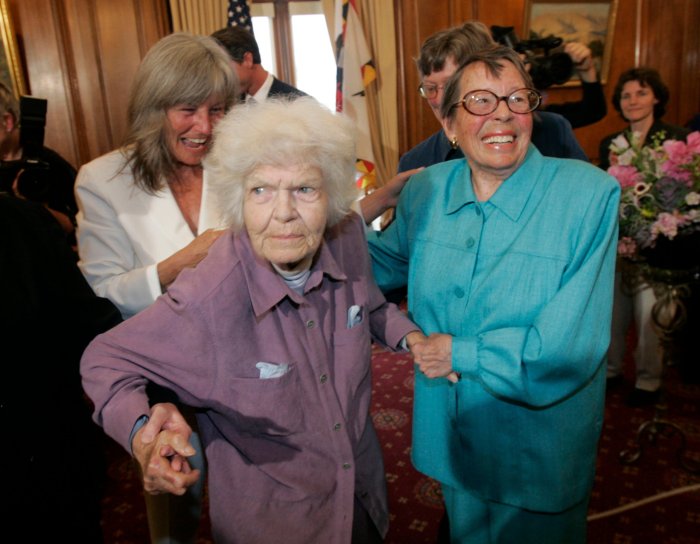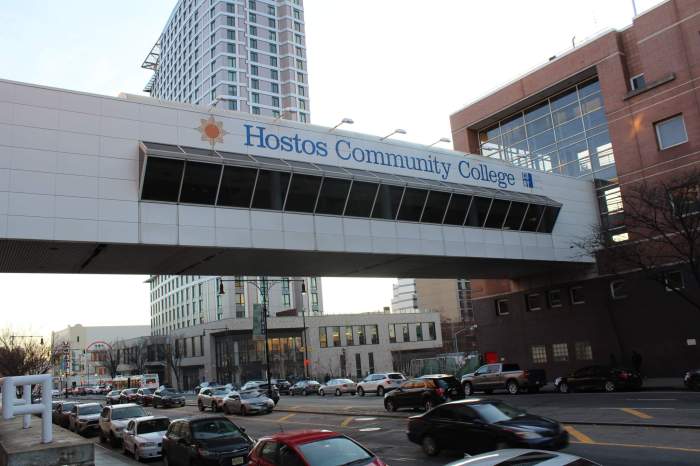US District Court Judge David Bunning ruled on March 18 that Kim Davis, who was the Rowan County (Kentucky) Clerk in 2015 when the Supreme Court ruled that same-sex couples had a right to marry, had violated their constitutional rights by refusing to issue marriage licenses to such couples.
Two of the couples who were denied licenses by Davis’ office in July 2015 and repeatedly thereafter — David Ermold and David Moore, and James Yates and Will Smith — had sued Davis to get their licenses, then went on to sue her for damages. Both couples were eventually able to get their marriage licenses after Judge Bunning jailed Davis for contempt of court when she defied his order to issue the licenses. A deputy clerk in the office issued the licenses as part of a deal to get Davis released.
Davis objected to same-sex marriage on religious grounds, and although she understood that her duty under the law was to issue the licenses, she felt that under the First Amendment’s Free Exercise Clause, she had a right to obey her conscience rather than the law.
A major sticking point for Davis was that the county clerk’s signature was required to be on the marriage license, and she did not want this permanent and visible record of her acquiescence to exist. She had asked the legislature to amend the marriage law to eliminate that requirement, but it did not act in time to forestall the problems that arose when same-sex couples showed up at her office seeking licenses. She became a darling of the right and a media sensation.
Ermold, a college professor, decided to challenge her for re-election. He lost the Democratic primary contest, but the successful Democratic candidate went on to defeat Davis for re-election. Eventually, the Kentucky legislature amended the law to dispense with the requirement of the county clerk’s signature.
The US Court of Appeals for the Sixth Circuit rejected Davis’s appeal of Judge Bunning’s denial of her motion to dismiss the damage lawsuit. Bunning ruled on March 18 on motions for summary judgment by all the parties. He granted summary judgment to the plaintiff couples and denied Davis’s motion for summary judgment. However, he found that the question of what damages Davis should have to pay to the plaintiffs for her denial of their constitutional rights was a factual issue to be decided by a jury, so the case is not over yet.
Judge Bunning was appointed to the District Court in 2002 by President George W. Bush. The American Bar Association had rated him as “unqualified” at that time, finding that at age 35 he lacked the necessary experience to be a federal trial judge, but he was unanimously confirmed by the Senate.
Early in the litigation against Davis, Judge Bunning wrote: “Our form of government will not survive unless we, as a society, agree to respect the US Supreme Court’s decisions, regardless of our personal opinions. Davis is certainly free to disagree with the court’s opinion, as many Americans likely do, but that does not excuse her from complying with it. To hold otherwise would set a dangerous precedent.”
In his March 18 decision, he decisively rejected Davis’ argument that she should enjoy immunity from having to pay damages, because the Supreme Court had established that the gay couples had a constitutional right to get the marriage licenses, and Davis’s testimony showed that “she knowingly violated the law.” Elected officials enjoy “qualified immunity” from paying damages for their actions in office unless they are violating a clearly established right of which they had reason to know. “Any argument that Davis made a mistake, instead of a conscious decision to violate the law, is not only contrary to the record, but also borders on incredulous,” wrote Judge Bunning.
The gay couples had not sought to have Bunning rule on the amount of damages in their summary judgment motion, acknowledging that they had yet to provide the necessary evidence to document their injuries. Nominal damages (a small symbolic amount) would always be available for a constitutional violation, but their claims are more wide-ranging. They seek compensatory and punitive damages, pre and post judgment interest (for litigation that dates back to 2015), and costs and attorneys’ fees, which are authorized under federal law for successful plaintiffs who sue to vindicate their constitutional rights. The compensatory damage claims are for “mental anguish, emotional distress, humiliation and reputation damages.” Testimony by therapists would be provided to the jury to gauge the extent of the emotional damages.
In addition, Bunning wrote, “Based on the record before the Court, it seems plausible that Davis could have acted with reckless indifference to the constitutional rights of Plaintiffs,” which means they could also win punitive damages, intended to punish Davis for violating her oath of office in way likely to cause injury to the plaintiffs.
The plaintiffs are represented by Rene B. Heinrich of Newport, Kentucky, and William Kash Stilz, Jr., of Covington, Kentucky.




































